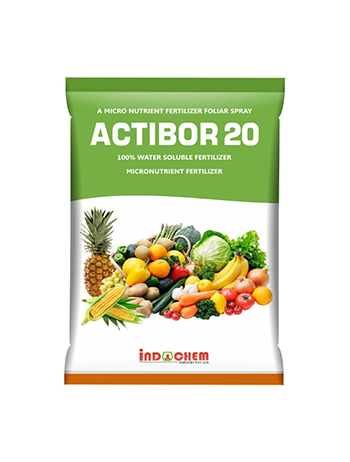Organic Nutrients for Plants

Introduction
Organic gardening has gained remarkable popularity in recent years as more people seek sustainable and eco-friendly ways to grow healthy, vibrant plants. One of the most important foundations of successful organic gardening is the proper use of organic nutrients for plants. These natural nutrients come from living or once-living sources such as compost, manure, bone meal, seaweed, and other plant- or animal-based materials. Unlike chemical fertilizers, organic nutrients release their goodness slowly, enriching the soil over time and supporting healthy plant growth in a natural way.
Organic nutrients work in harmony with the soil’s ecosystem, encouraging the growth of beneficial microorganisms that break down organic matter into forms plants can easily absorb. This creates a balanced, nutrient-rich environment that improves soil structure, boosts water retention, and enhances root development. As a result, plants become more resilient to pests, diseases, and environmental stress, reducing the need for harmful synthetic chemicals.
Another key benefit of using organic nutrients is their long-term impact. They don’t just feed the plants — they feed the soil, ensuring fertility and productivity season after season. Whether it’s vegetable gardens, flowering plants, fruit trees, or houseplants, organic nutrients support overall plant health, resulting in stronger growth and better yields.
For home gardeners and farmers alike, understanding the right types of organic nutrients and how to apply them can make a huge difference. It leads to healthier crops, safer produce, and a more sustainable gardening system. By choosing organic nutrients, you’re not just helping your plants thrive — you’re also contributing to a greener, healthier planet.
Types of Organic Nutrients for Plants
- Compost – The Foundation of Organic Gardening
Compost is one of the most effective and widely used organic nutrients for plants. Made from decomposed kitchen scraps, garden waste, and other organic materials, compost enriches the soil with a wide range of nutrients. It improves soil structure, increases moisture retention, and boosts microbial activity. Regularly adding compost to your garden ensures a steady supply of essential nutrients like nitrogen, phosphorus, and potassium.
- Manure – A Natural Fertility Booster
Animal manure, such as cow, horse, or poultry manure, is an excellent source of organic nutrients. It provides a balanced nutrient mix and improves soil aeration and texture. However, it is best to use well-composted manure to avoid burning plant roots. Manure is particularly beneficial for vegetable gardens and fruit trees, helping them grow strong and healthy.
- Bone Meal and Blood Meal – Nutrient-Rich Additives
Bone meal is rich in phosphorus and calcium, promoting strong root development and flowering. It is ideal for bulbs, flowering plants, and fruiting crops. Blood meal, on the other hand, is a great source of nitrogen, encouraging lush green growth. These nutrient-dense materials should be applied carefully, as overuse can harm plants.
- Seaweed and Fish Emulsion – Ocean-Based Plant Food
Seaweed fertilizers and fish emulsions provide a natural boost of trace minerals and growth hormones. They stimulate root growth, enhance plant immunity, and improve yield. Seaweed can be applied as a liquid or mulch, while fish emulsion is typically diluted and used as a foliar spray or soil drench.
- Green Manure and Cover Crops – Soil Builders
Green manure involves growing specific plants like clover, alfalfa, or legumes and then tilling them into the soil. This method adds organic matter, fixes nitrogen, and prevents soil erosion. It’s a sustainable way to enrich garden beds without synthetic inputs.
How Organic Nutrients Support Plant Growth
Building Healthy Soil
Organic nutrients work gradually, allowing the soil to build a stable nutrient base. This improves soil fertility over time, making it ideal for long-term gardening success.
Enhancing Plant Immunity
Plants grown with organic nutrients are naturally more resistant to pests and diseases. Strong root systems and balanced nutrition help them adapt better to changing conditions.
Encouraging Sustainable Gardening
Using organic nutrients reduces chemical pollution and supports biodiversity in the soil. It’s a step toward creating a self-sustaining ecosystem where plants, soil, and microbes thrive together.
Conclusion
Using organic nutrients for plants is one of the most effective and sustainable ways to build a healthy garden. Unlike synthetic fertilizers that offer quick but temporary results, organic nutrients enrich the soil gradually, creating a balanced and fertile environment that supports long-term plant health. They not only supply essential elements like nitrogen, phosphorus, and potassium but also improve soil texture, moisture retention, and microbial activity — all of which contribute to stronger, more resilient plants.
When plants are nourished organically, they develop healthier root systems, produce more vibrant foliage, and yield better-quality flowers, fruits, and vegetables. Organic methods also reduce the risk of chemical runoff, making your garden safer for people, pets, and the environment. Whether through compost, manure, bone meal, or seaweed, these natural nutrients provide everything your plants need to grow naturally and vigorously.
Most importantly, adopting organic gardening practices supports a sustainable cycle — feeding the soil so the soil can feed the plants. By choosing organic nutrients, you’re not just growing healthier plants; you’re nurturing the earth itself and contributing to a greener, more eco-friendly future. It’s a simple step with a powerful impact on both your garden and the planet.
Engaging & Promotional CTA
Ready to give your plants the natural boost they deserve? Switch to organic nutrients and watch your garden thrive the healthy way! At indochemagrovet.in, we offer high-quality organic solutions designed to enrich your soil, strengthen your plants, and support sustainable farming practices.
📞 Call Us: +91 9830 720311 / 83369-77770
🏢 Mumbai Address: Parewala House No.4, Vakola, Santacruz (East), Mumbai 400055
🏢 Kolkata Address: Block – DD, House No.197, 1st Floor, Street No.295, Action Area-1, New Town, Kolkata, West Bengal 700156
Let’s build a greener tomorrow — naturally. Visit our website or contact us today to explore our range of eco-friendly, effective organic nutrient solutions. Your plants will thank you!

